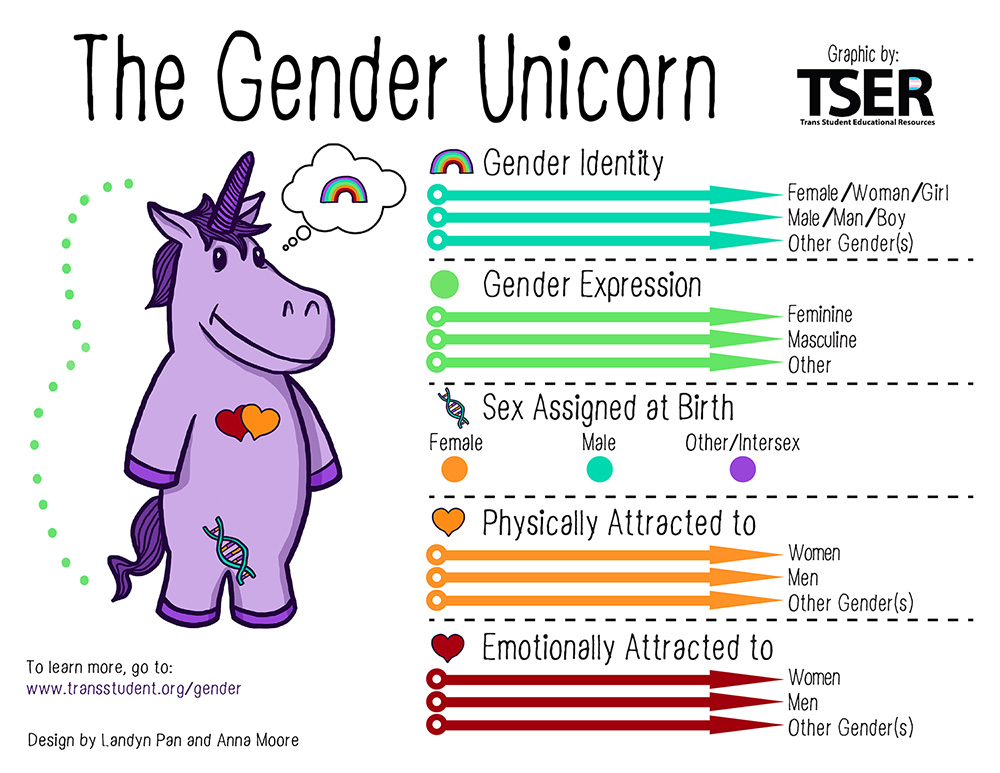LGBTQ Student Success Initiative & Terminology
Learn about Highline College’s LGBTQ Student Success Initiative, history, planning and implementation.
View the glossary of terms from GLADD
An Ally’s Guide to Terminology
Why are we asking?
This data will allow us to know more about you, as students at Highline College. It will help us to design and to develop services and programs that will reflect your identities and experiences.
What is Gender Identity?
The term “gender identity” is distinct from the term “sexual orientation”. Gender identity refers to a person’s inner reality and deeply felt psychological identification as a man, woman, or some other gender, which may or may not correspond to their biological sex. (Biological Sex: The physical anatomy and hormones a person is born with. Generally described as male, female, or intersex.)
Feminine
Having qualities or appearances traditionally associated with women.
Masculine
Having qualities or appearances traditionally associated with men.
Androgynous
Having qualities or appearances not traditionally associated with men or women.
Gender neutral
A person who does not identify entirely as masculine or feminine.
Transgender
One’s gender identity or expression does not match and/or is different from the sex they were assigned at birth.
Other
Persons who feel none of the previous definitions fit them.
What is Sexual Orientation?
Describes who you’re attracted to (i.e. sexually, romantically, physically, and emotionally)
Gay
A man whose primary attractions are to other men (i.e. sexual, romantic, physical, and emotional)
Lesbian
A woman whose primary attractions are to other women (i.e. sexual, romantic, physical, and emotional)
Bisexual
A person whose primary attractions are to both men and women (i.e. sexual, romantic, physical, and emotional).
Straight/Heterosexual
A person whose primary attractions are to people of the opposite gender (i.e. sexual, romantic, physical, and emotional)
Other
Persons who feel none of the previous definitions fit them.
Queer
Some people identify as queer rather than as lesbian, gay, bisexual or transgender.
- likes to spend time with people of many genders;
- a label for people who feel they do not fit well in any one group;
- sometimes used as a word for all people with non-heterosexual sexual orientations;
- historically, a bad word, its use today is welcome by some and unwelcome by others.


